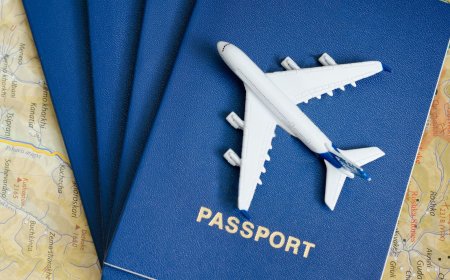Australia to Cap International Student Enrolments | Australia Immigration Updates
In a bid to alleviate the mounting pressures within the university sector, new legislation before the Australian Parliament will empower the Education Minister to cap the number of international students at each university.
This move, driven by the Education Services for Overseas Students Amendment Bill, comes in response to the unprecedented surge in overseas student enrolments following the end of the COVID-19 pandemic.
The Education Minister has confirmed that the proposed laws will grant him the authority to set individual enrolment caps for each university. This power aims to address various concerns, including housing shortages, resource allocation, and maintaining the quality of education amidst the influx of international students.
The Impact of Rising International Student Numbers
Since the pandemic, Australian universities have experienced record numbers of international student enrolments. This surge has significantly strained university resources, leading to a pressing need for more student accommodation and support services. Many universities, such as the University of New South Wales (UNSW), have faced opposition from local councils and residents when proposing new student housing developments.
For instance, UNSW's proposal to build a 1,066-room student housing development faced significant backlash from Randwick Council, which sought to reduce the development to a seven-storey building citing concerns over height and bulk. The university argued that such decisions were politically motivated and detrimental to strategic planning and development.
Balancing Growth and Community Interests
The federal government's push to cap international student numbers is part of a broader strategy to balance the growth of the education sector with community interests. Universities argue that state and local governments often place barriers in their path, hindering efforts to expand student housing.
The Student Accommodation Council has emphasized the need for faster approval processes for Purpose-Built Student Accommodation (PBSA) developments, citing lengthy delays and stringent regulations as significant hurdles. According to recent reports, the current pipeline of new PBSA will not suffice to meet the rising demand, with thousands of new beds needed to accommodate the growing number of international students.
Calls for Reform and Collaboration
Educational institutions and peak bodies are calling for reforms that would classify PBSA as a separate asset class, enabling it to bypass some of the strict residential property regulations. They argue that such changes would help address the housing crisis by speeding up development approvals and reducing costs.
Moreover, there is a call for greater collaboration between federal, state, and local governments to streamline planning processes and support the universities' efforts to provide adequate housing for students. The current cyclical dynamics have prompted universities to seek stability and certainty to continue attracting international students, which is vital for their revenue and overall viability.
Looking Ahead
While the new legislation is a step towards managing the international student population, universities stress the need for comprehensive support from all levels of government. They highlight the importance of balancing international student enrolments with adequate housing and resources to ensure the sustainability and quality of Australia's higher education system.
As the Education Services for Overseas Students Amendment Bill progresses through parliament, its implications for the future of international education in Australia remain a critical point of discussion among policymakers, educational institutions, and the broader community.
What's Your Reaction?
 Like
0
Like
0
 Dislike
0
Dislike
0
 Love
0
Love
0
 Funny
0
Funny
0
 Angry
0
Angry
0
 Sad
0
Sad
0
 Wow
0
Wow
0







































































































